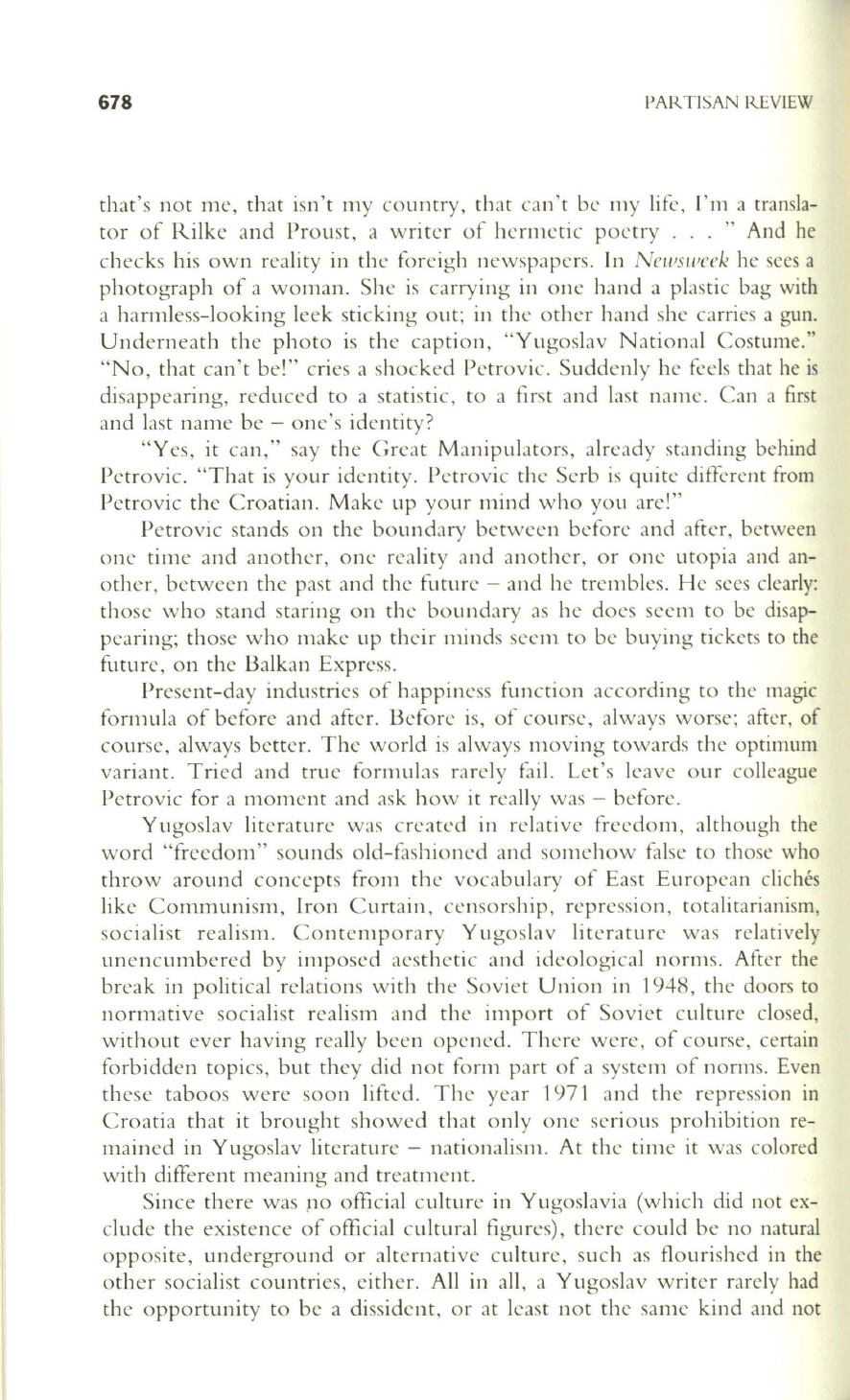
678
I'ARTISAN IliVIEW
that's not me , that isn't my country, that can't
be
my life , I' m a transla–
tor of Rilke and Proust, a writer of hermetic poctry . .. " And he
checks his own rcality in the foreigh ncwspapcrs. In
NCII'slI'cek
he sees a
photograph of a woman. She is carrying in onc hand a plastic bag with
a harmless-looking leek sticking out; in the other hand she carries a gun.
Underneath the photo is the caption, "Yugoslav National Costume."
"No, that can't be!" cries a shocked Petrovic. Suddenly he feels that he is
disappearing, reduced to a statistic, to a first and last name. Can a first
and last name be - onc's identity?
"Yes, it can," say the Great Manipulators , already standing behind
Petrovic. "That is your identity. Petrovic the Serb is quite different from
Petrovic the Croatian. Make up your mind who you are!"
Petrovic stands on the boundary between before and after, between
onc time and another, one reality and another, or one utopia and an–
other, between the past and the future - and hc trembles. He sccs clearly:
those who stand staring on the boundary as he docs seem to be disap–
pearing; those who make up their minds seem to be buying tickets to the
future, on the Balkan Express.
Present-day industries of happiness function according to the magic
formula of before and after. Before is , of course, always worse; after, of
course, always better. The world is always moving towards the optimum
variant. Tried and true formubs rarely f.1il. Let's leave our colleague
Petrovic for a moment and ask how it really was - before.
Yugoslav literature was created in relative freedom, although the
word "freedom" sounds old-fashioned and somchow false to those who
throw around concepts frol11 the vocabulary of East European cliches
like Communism, Iron Curtain, censorship, repression , totalitarianism,
socialist realism . Contemporary Yugoslav literature was relatively
unencumbered by imposed aesthetic and ideological norms. After the
break in political relations with the Soviet Union in
1948,
the doors to
normative socialist realism and the import of Soviet culture closed,
without ever having really been opened. There were, of course, certain
forbidden topics, but they did not form part of a system of norms. Even
the se taboos were soon lifted . The year
1971
and the repression in
Croatia that it brought showed that only one serious prohibition re–
mained in Yugoslav literature - nationalism . At the time it was colored
with different meaning and treatment.
Since there was po official culture in Yugoslavia (which did not ex–
clude the existence of official cultural figures) , there could be no natural
opposite, underground or alternative culture, such as flourished in the
other socialist countries, either. All in all, a Yugoslav writer rarely had
the opportunity to be a dissident, or at least not the same kind and not


